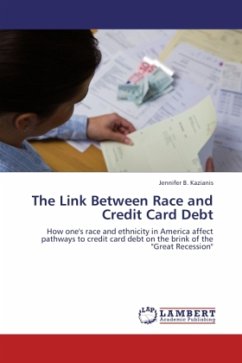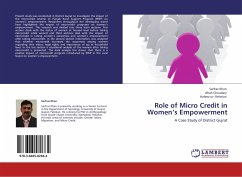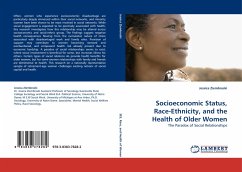Keeping up "With the Joneses" has become a true American past time. American's live in a culture where what you purchase is a symbol of status and wealth. American's have been increasingly turning to credit cards for luxury purchases and basic necessities like food and shelter. A combination of these factors and the recent economic downturn have turned American credit card debt into a national emergency. Jennifer Kazianis,MS,MSTT, investigates the pathways into troubling credit card debt for people of different ethnic/racial backgrounds. Crafted at the very beginning of the "Great Recession", this work compares responses of four ethnic groups: African Americans, Caucasians, Hispanics and a mixed race/other category. Participants were asked to rate the importance of seven factors that lead to troubling credit card debt. The author explores if there is a difference among racial and ethnic groups in their readiness to reduce credit card debt. Results are discussed in light of incorporating behavioral strategies by credit counselors that can help influence the behaviors of different racial/ethnic groups.







![Busn (with Mindtap Business, 1 Term (6 Months) Printed Access Card) [With Access Card] Busn (with Mindtap Business, 1 Term (6 Months) Printed Access Card) [With Access Card]](https://bilder.buecher.de/produkte/48/48916/48916324m.jpg)
